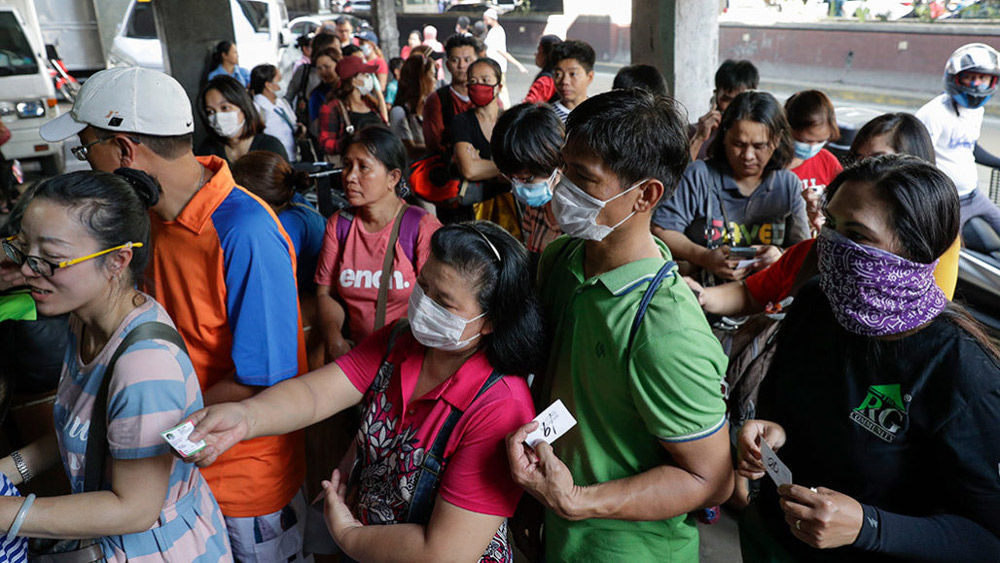Photo Courtesy of Science News
Despite the BSP initiative for inclusive finance and the boom of digital financial solutions during the pandemic, 51.2 million Filipinos remain unbanked. It means that the majority of Filipinos still don’t have an account. This limits the opportunities that they have, unable to access financial services and assistance that financial institutions provide.
The lack of access to these services makes it difficult to get the much-needed funds for their needs – and the pandemic has highlighted this even more. This is what the government and organizations are trying to solve. To address this, we must first understand their situation.
Why Filipinos Remain Unbanked
A Nielsen Company study found that at least 1 in 3 unbanked want to own loans, savings accounts, and life insurance, showing that they want to have access to financial services. But what are the reasons why Filipinos don’t have an account?
1. Lack of awareness and information
Photo Courtesy of National News
Most Filipinos are not aware of the benefits they can gain by being banked because they don’t have the details on opening an account and other banking products. As a result, they have misconceptions on banking:
- Banks are just for savings: Banks also offer loans, money transfers, remittances, bills payment, and even serves as a channel for government benefits and financial assistance.
- Don’t need a bank account: People are looking for financial services that can address their needs, especially during times of emergencies. But you need to have an account to be able to get easier access to such services.
As one of the main reasons why Filipinos remain unbanked, lack of information is not just about having misconceptions. It also plays a role in other challenges that Filipinos experience. By distributing the right information properly, more people can be encouraged to be banked.
2. Having a limited amount of money
Photo Courtesy of Freepik
This is one of the major concerns of Filipinos, especially for those living with day-to-day paychecks. They’re more focused on sustaining their daily needs, such as food and utilities, before thinking about saving money. And with the current pandemic, they’re even more concerned about their necessities.
Institutions like rural banks provide basic deposit accounts (BDA) that allows people to open an account for only Php100 or less – with some banks even offering as low as Php 1. Despite that, 60% of Filipinos are still not aware of BDA. Helping banks increase awareness will encourage more people to open an account and get access to more financial resources in the long run.
3. Lack of accessibility
Photo Courtesy of Think ING
Did you know that there are 510 cities and municipalities in the country with no banking presence in 2019? This is why the majority of Filipinos find bayad centers, pawnshops, and ATMS the most accessible for financial transactions. It’s nearer and more convenient to go to compared to banks.
But most Filipinos are unaware of rural banks. In fact, there are more rural banks in the country than commercial banks. These institutions are scattered throughout the Philippines and are easier to reach compared to big banks.
4. Not having enough requirements
Photo Courtesy of South China Morning Post
One of the reasons why Filipinos are unbanked is that they don’t have enough requirements. BSP’s 2019 Financial Inclusion Survey found that 71% find it difficult to open an account because of the documentary requirements while 58% don’t have requirements when applying for a loan in a formal financial institution.
To address this, the government is working on the Philippine National ID which will replace the 2 valid IDs requirement, allowing financial institutions to make their account opening process easier and more convenient.
With these banking challenges in the Philippines, most turn to informal means like saving money at home and getting loans from family and friends, with some even turning to 5-6 lenders. Their money is left unsecured and limits their financial opportunities, especially with a pandemic going on. Helping institutions solve these problems can encourage more Filipinos to have an account to transact more easily and grow their money.
Addressing the Challenges for Better Financial Inclusion
Moving Forward: How You Can Recover and Grow After COVID-19Learning the advantages of the banking system can help Filipinos, especially those in poverty, get easier access to capital and other financial resources that not just sustain their needs but also help them grow and be financially independent in the long run. #TheBetterWay #MakingFinancialServicesUniversallyAccessible
Posted by PearlPay on Monday, December 21, 2020
As BSP Governor Diokno shared during the Financial Stability Report Press Briefing last November 18, businesses and households are in a different situation now, which is why it’s even more important to have equal access to banking services, especially for Filipinos in poverty.
With the new normal, they’re finding it hard to look for side jobs or “raket” to earn more money and sustain the needs of their families. But how can we help them gain access to capital and financial resources?
This is where digital transformation comes in. Empowering financial institutions like rural banks can help address the reasons why Filipinos remain unbanked. Using digital solutions help more people be more aware and informed about financial services that can meet their needs. They can also easily access these services, improving accessibility in communities with no banking presence.
By making financial services universally accessible, Filipinos can not only sustain their needs but also help them grow and improve their standard of living.
